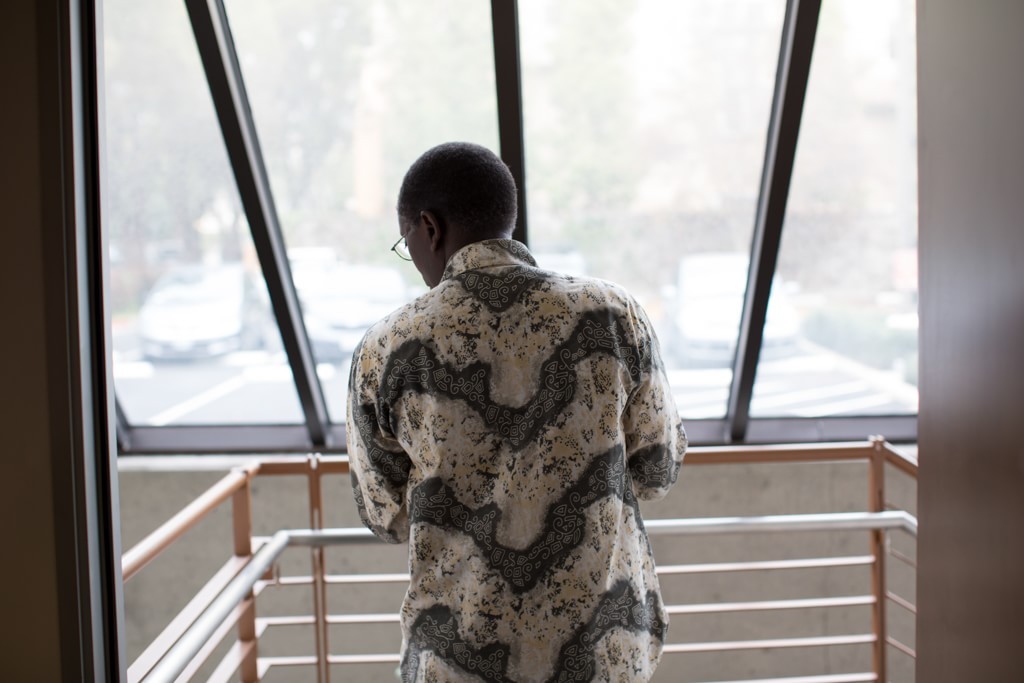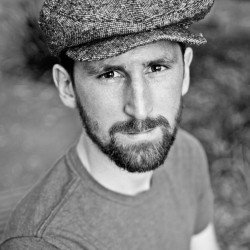 In 1988, a man gave his testimony before his church. It was a normal account of conversion, of encountering Christ, of a change in life and outlook, until a crucial sentence.
In 1988, a man gave his testimony before his church. It was a normal account of conversion, of encountering Christ, of a change in life and outlook, until a crucial sentence.
“With the help of Jesus Christ, I have been able in my heart, in the deepest places of me, to let go of my hatred and forgive the Hutus who killed my father.”
As Antoine Rutayisire stepped down from the podium, members of his Rwandan church approached him. “Why did you say that about the Hutus?” they asked. “God is not concerned with such things.” In a few years, Rutayisire’s convictions would be severely tested.
By 1990, tensions between the Hutus and the Tutsis in Rutayisire’s native Rwanda were at a crisis point. The country was primed to be ripped apart by an ethnic hatred that had deep roots in tribal rivalries and Belgian colonialization. The numerically superior Hutus were in power, and though moderates ruled the government, Hutu extremists were quickly gaining parliamentary seats and army appointments. A rebel force of Tutsi defectors gathered in neighboring Uganda, calling for reconciliation and compromise with the central Rwandan government.
Then, on April 6, 1994, the airplane of President Juvenal Habyarimana, a Hutu, was shot from the sky. Hutu extremists blamed the Tutsis, sidestepped the succession of power, executed the prime minister and the president of the Constitutional Court, and formed a “crisis government.” The next day, their temporary government broadcast a manifesto over the radio to the Hutu population: every Tutsi is a threat to Hutu security, and every man, woman, and child must be killed. The Rwandan Genocide began.
What began on April 7 did not end until July 4. Tutsi rebels from Uganda invaded with full force and a desperate hope to stem the killing, but Hutu extremists were too effective. Aided by a populace with deeply embedded hierarchy and obedience narratives, the Hutu government inspired the murder of Tutsis at the rate of seven people every minute. By the time Tutsi rebels captured the country and stopped the slaughter, Hutus had butchered over one million Rwandans—both Tutsis and moderate Hutus.
The church by no means escaped unscathed or guiltless. Many clergy were brutally murdered; many were arrested for crimes against humanity. When Rutayisire chose the priesthood as the ground from which he would help to bring the Rwandan world back together, he was confronted by media representatives asking, “Why are you still in the church? Can’t you see that Christianity has failed?” Prior to the genocide, 90 percent of the country had been Christian; now nuns, priests, pastors, bishops, and Sunday school teachers were incarcerated for decidedly non-Christian acts: burning people alive, decapitating their neighbors, and bulldozing refugees in safe houses. The Anglican priest tried to articulate to reporters a conviction that lingered deep within him—one he could not even fully understand.
“No,” he said. “People have failed. Communities have failed. The institution of the church has failed. But God never fails.”
The incredulous retort was that the church had not failed—it had died. It is not dead, Rutayisire replied, “It is a sleeping giant. The church is not someone you bury, it is someone you wake up.”
One reporter challenged him: “We will see if you can wake it up.”
That challenge stayed with Rutayisire for years as he participated in efforts to rebuild Rwanda, holding in tension some very difficult questions along the way: How did this happen, why did this happen, and how could the church have been so complicit? He thought back to that Sunday morning, long before they saw the worst of the killing, and wondered why church members approached him after he spoke of racial forgiveness convinced that “God is not concerned with such things.”
Rutayisire could only tell himself, “I know something went wrong, but I do not know what. I know that our faith is not dead.” He longed for leadership development. Then, Bellevue Presbyterian church in Seattle, Washington, sponsored Rutayisire to take his questions to Fuller. In 2004 he began a Master of Arts in Global Leadership, driven by and focused on the types and modes of leadership and church that could ensure that people who called themselves Christians would never allow such egregious hypocrisy to happen again.
The more he studied, the more he was convinced that the problem was far bigger than even the Rwandan Genocide—incomprehensible as that was. His research led him to conclude that for centuries the church had not considered social injustices as pertinent to their faith—much less moral evils: Western Christians began and perpetuated the transatlantic slave trade; many of the best theologians in the world backed German aggression in the First World War; a generation later, German Christians theologically and ideologically supported Nazism and the Aryan agenda; it was the church that helped to develop backing for the implementation of Apartheid; and Christians wielded machetes and AK-47s against their neighbors in Rwanda. Even as he studied, an African continent well-populated with churches was also debilitated by HIV, astronomical infant mortality rates, and widespread lack of education. Only when issues that had grown and compounded in shadows and crevasses exploded in crisis did the church act.
The church had been in many forms, places, and times a reactive institution. Rutayisire wanted that to change. He is committed to that change. The church, he says, must become proactive, striking at the heart of injustice and violence and corruption wherever it appears. And for that, he says, we need stronger leaders.
“We have been using the wrong model for training pastors,” Rutayisire declares. “Our current ways of working—whether meant to or not—have resulted in pastors who impress congregants with their speaking ability on Sunday morning but do not equip them for the challenges of life.”
“We have been so concerned with producing church members,” says Rutayisire, “that we have produced just that. Church members. But that is not what the life in Christ is about; it is about transforming people and communities. Have our ministries produced transformed communities? Have we shaped people into Christlikeness?”
“When Jesus returns, will he be happy with our harvest? I can tell you now, he will not.”
This is what it means to wake a sleeping giant, according to Rutayisire. Waking the church out of its apathy and complicity, opening its eyes to blind spots where it does not see injustice. This is not just an issue for the institution of the church, but for every individual making up the body of Christ. The church, Rutayisire hopes, will fully become what it was supposed to be: not places of membership, but places of transformation filled with believers who take action against injustice before it takes form in violence, in caste systems, in genocide. This is what it means to buy into Christ’s vision of the kingdom of God.
“If we had the heart of Jesus,” asks Rutayisire, “would people still die of hunger? No. Not a person on earth would go hungry or naked if the church woke up and became who Christ called it to be.”

That means removing blind spots, fighting injustice, and giving every man, woman, and child new lenses through which to view the world; but that isn’t where it stops for the priest from Rwanda, because that is still simply reactive. “If I were to step on a nail in your hallway and cry out in pain, you would come running and throw away the nail so it could not hurt anyone else. But I would still be injured. Throwing away the nail does not heal my foot. The injustice has been removed, but healing has not been embarked upon. That wound and the pain it generates are dangerous.”
Rutayisire sees the real work of the church in reconciliation and healing after the genocide. Otherwise, pain festers and hatred reemerges and evil erupts again, as it has among the Hutus and the Tutsis. Refugees of the genocide—both victims and perpetrators—fled into neighboring nations, and the hatred that killed so many in Rwanda poisoned the countries around it, says Rutayisire, contributing to wars that continue today.
It might take a God to stop it. At the very least, a giant.
Rutayisire now runs the Kigali Anglican Theological College in Rwanda’s capital as he finishes his Doctor of Missiology at Fuller. His leadership cohorts in Kigali focus on training pastors who are already in ministry, with ministry accountability partners who point out blind spots, who keep students focused on truth and love, who share the dream of the kingdom of God. The fledgling program has already seen fruit; in just eight years, over 170 pastors have attended the college and are serving local congregations. It is just the beginning of what Rutayisire trusts will be a long-lasting and healthy trajectory to true peace and reconciliation. He works toward a day when machetes are beaten into plowshares, and toward a Rwanda that has no distinction between Jew or Gentile, male or female, Hutu or Tutsi, with all as one in Christ Jesus. Antoine Rutayisire, his church, and his school hope to be part of that healing, part of the transformation.
The giant is waking up.


